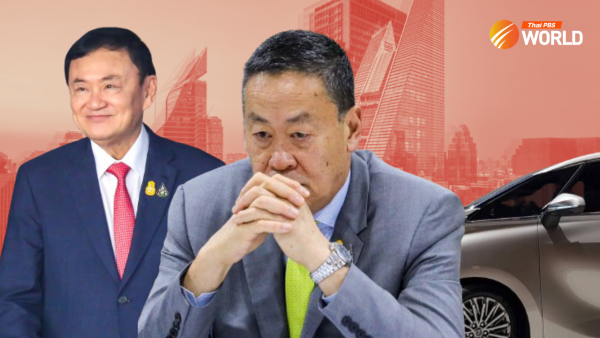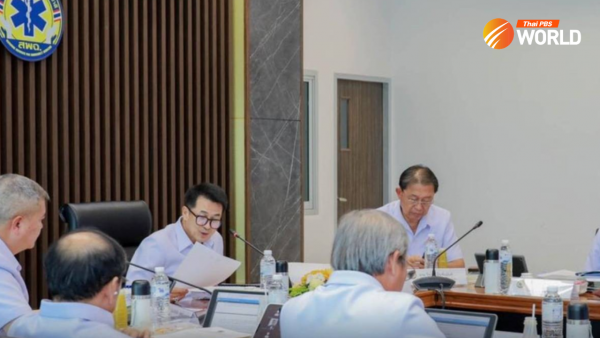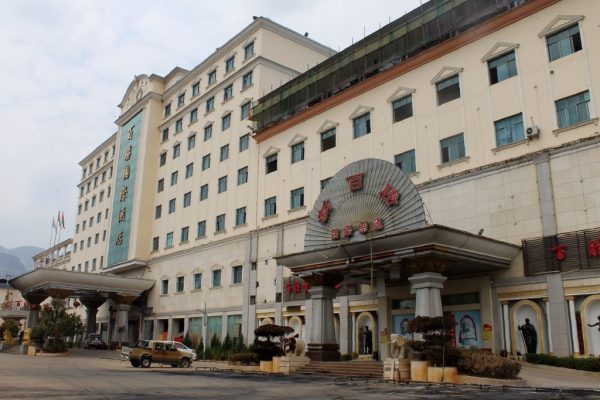The momentum was missed, and the PM’s message was off track

The televised address by Thai prime minister, Prayut Chan-o-cha, on Friday was widely criticized. Experts said it is not just because of the issue of communication skills, but also the expectation and the surrounding situation that led to that moment, and the momentum was missed.
Asst.Prof. Dr.Tavida Kamolvej, the dean of the faculty of Political Science at Thammasat University, said that, in a crisis, momentum is also an important element.
“Momentum creates synergy, to which you really want society to react, unite and change behavior and help the nation. So, the momentum, when people wait for something to happen, you’ve got to have it,” Dr. Tavida said.
She added that any country in this intense situation needs a leader that not only comes out strong but can also create confidence. A leader that can show empathy, and make sense of what is going on.
Communication and personality
Every world leader has their own personalities, thus their ways of communicating.
Dr. Tavida talked about the different styles of communication of different leaders. For example, Jacinda Arden, the prime minister of New Zealand, is very strong, but motherly. So, her message is comforting and caring, yet very strong and strict.
Angela Merkel, the German chancellor, always brief and assertive, it keeps everyone pretty much in line.
The personality of Lee Sian Lung, the prime minister of Singapore, is more avuncular, very easy going, and at the same time, building national cohesion.
Meanwhile, Tsai Ing-wen, the president of Taiwan, doesn’t speak much, she communicates through her actions, by actually getting things done.
Prayut’s military-style, non-communicative speeches do little to reassure public
Prime Minister General Prayut Chan-o-cha’s communication style has never been impressive, especially when it comes to tackling crises like the COVID-19 outbreak that hit the country early last year. His regular address to the nation often draws criticism and has done little to boost public confidence in the government.
The advantage
Prayut actually has something to build on. Having been in the military throughout his professional life, his personality is very tough, and everyone knows how direct he can be. To turn this to an advantage, however, it must be kept under tight emotional control, said Dr. Tavida.
Additionally, his supporters love him and view him as a hard worker. That can make people open to him, ready to listen to his message, if it is solid and informative of course.
The Friday’s message was, Dr. Tavida said, a little off track.
“On Friday, the nation was, pretty much, waiting for a single message; what will happen next, especially regarding vaccines? Over 50% of the message was, however, actually spent berating people who criticize him and raising questions. It is not the time to do so,” she explained.
The last mile
Leadership during a crisis is vital. Every decision the country leader makes or fails to make, will affect the whole nation, and “Communication is always the last mile,” said Dr. Tavida.
The leader’s job can be tiring, but the people are also tired since this fight with COVID-19 has continued for everyone for over a year now. Being a leader, the prime minister needs to communicate with and unite the nation.
“He has to speak to their hearts, what can be done on the government side? What will be enforced? What work will the government nurture? What are the next steps? What will happen to them?” said Dr. Tavida.
“There is a thin line between complaining and babbling about the hard work, and telling people where our joint efforts will lead to,” she added.
The advice Dr. Tavida said she would give the prime minister “Don’t believe that what you did was the best you could have done,” adding “You did your best. But you have to know what you missed and communicate that, tell the nation that the country has to work on it. It’s not going to hurt to tell everyone that we missed something.”
She said it is vital to identify the failures, the errors, and correct them as soon as we can.
Crisis is difficult, so something always gets missed.
by Kiratikorn Naksompop Blauw






